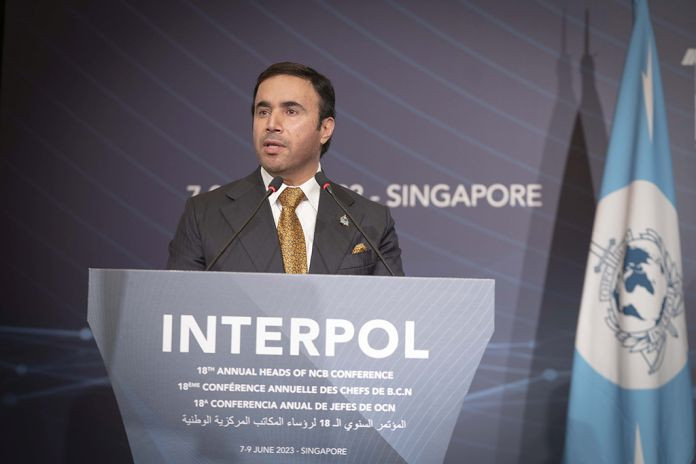SINGAPORE, (INTERPOL) – Addressing the multi-faceted challenges posed by a complex and increasingly deadly criminal landscape is the focus of Interpol’s Heads of National Central Bureaus (NCBs) annual meeting taking place this week.
As criminal networks exploit advances in emerging technology, the conference will serve as a platform to encourage greater cooperation in developing effective strategies to combat these threats at the regional and global level.
It is therefore particularly fitting that for the first time, the three-day (7 – 9 June) conference is being held in Singapore, home to Interpol’s Global Complex for Innovation.
Through panel-based discussions and regional roundtable sessions, some 270 delegates from 133 countries will identify best practices to counter cybercrime, organized, terrorism and other emerging criminal trends.
Interpol president Ahmed Naser Al-Raisi told delegates:
“This conference is a key event in the Interpol calendar. NCBs are essential to Interpol’s work. They are the foundation of our organization, and they allow us to fight crime across borders. There are big challenges for law enforcement ahead. With a strong international network, and tech-enabled tools, law enforcement will triumph. We will build an even safer world.”
Operational successes
Secretary General Jürgen Stock pointed to the operational successes achieved through the INTERPOL Cooperation Against ‘Ndrangheta (I-CAN) Project, which has become a model to target other criminal groups and related activities, particularly drug trafficking.
“There is a heightened urgency in combating the global drugs trade, both in the direct threat of trafficking illicit substances, and associated violence that impacts communities and economies,” said secretary-general Stock.
“The conversations I have had across our membership demonstrate that solutions need to be guided by their specific situation as either a source, transit or destination country, as well as the tangential crimes created by drug trafficking such as illicit firearms flooding the streets,” added secretary-general Stock.
The close links between different forms of criminality were recently highlighted by INTERPOL’s Operation Trigger IX.
Whilst the primary target was firearms trafficking routes and organized crime groups in Latin America, the three-week operation, which resulted in the seizure of 8,263 illicit firearms, also recovered drugs worth US$5.7 billion.
The operation, which saw an unprecedented level of cooperation across 15 countries, also identified a range of other crimes such as corruption, fraud, human trafficking, environmental crime and terrorist activities.
As Interpol celebrates its centenary, the heads of NCB conference brings together diverse national perspectives and expertise to shape a collective response to the complex global criminal threats today, and for the next 100 years.





